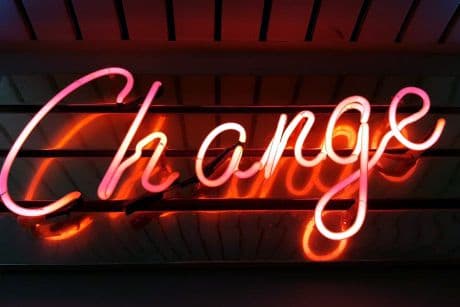What SHOULD You Change, Really?
Tips For Dealing with Change

Become a student of change. It is the only thing that will remain constant.
Anthony D'Angelo
Have you ever heard yourself or someone else say, "I know what I SHOULD do, but I don't!"
Don't be shy. It happens. It's part of the English language that you'll find in a dictionary. So despite what many people will tell you, you're not doing anything wrong at all. If you listen carefully to what people say, it can give you a real insight into their thinking and actions.
If you hear the phrase "I should..." then you can automatically guess that in reality this means "I won't..." Simply using the word "should" is enough to let you know that it's not going to happen because if it was, they would have said "when I..." or "I will..." or something more definitive. You can make the equation "should" = "won't".
Now before you get defensive, and say "Yes, but..." let me add one piece. There is often a REALLY good reason that you won't do it, and that is that most of the things that you think you "should" do, you really should not. This may seem strange at first, but let me give you 2 simple examples to make this a whole lot clearer.
First of all consider if there has ever been a time when you weren't assertive enough in a particular situation, and as a result you found yourself thinking along the lines of, "I should have told them exactly what I thought of them!"
Actually no. You almost certainly shouldn't have done anything of the sort. Just because you under-reacted the first time, doesn't mean that the overreaction you are planning is any more appropriate. In fact, it is highly likely if you stop and consider what you were actually proposing as an alternative, that you would have found yourself in some variety of disciplinary action or needed intervention by the police.
People can be pretty wild in their thinking and saying "should" doesn't excuse it, rather it just allows you to beat up on yourself for not doing something even more stupid than what you originally did.
Perhaps this seems too clear-cut a time when "should" is not the most accurate way to say something; but don't be too hasty. Even in more minor cases, saying "I should have done XYZ" is commonly an overreaction rather than an appropriate reassessment of what behaviors would actually have suited us better.
Second, there are times when doing the things you "know you should", is simply because someone else said so. Maybe you didn't question it at the time, maybe you did, either way you are following instructions now.
People throughout our lives are giving us guidance, from the early years of parents and teachers, on to friends, peers, self-help books, lawyers and doctors, and on, and on. They are not always right. In fact the advice is so often conflicting that it is almost certainly wrong much of the time. And even if someone is confident in telling you what is correct, their certainty is no guide to how well their information will work for you. It may just leave you feeling still however like you "should" do as they recommended.
This "should" is not a signal to keep stubbornly trying to do something. It is a signal to reassess the original statement, maybe add some qualifiers, or even throw the whole idea away completely.
Which ever of these two examples applies to the "should" you hear yourself saying, realize that you've just told yourself you won't anyway. So go easy on yourself, take a moment to reassess and you might find yourself not only removing one extra "should" from your life, but unburdening yourself of a whole pile of guilt in the process.
Copyright © 2007 Dr Martin Russell
Dr Martin Russell is the author of numerous articles in the area of self help and self treatment.

